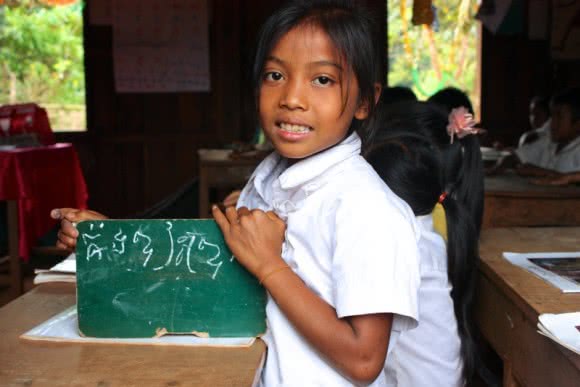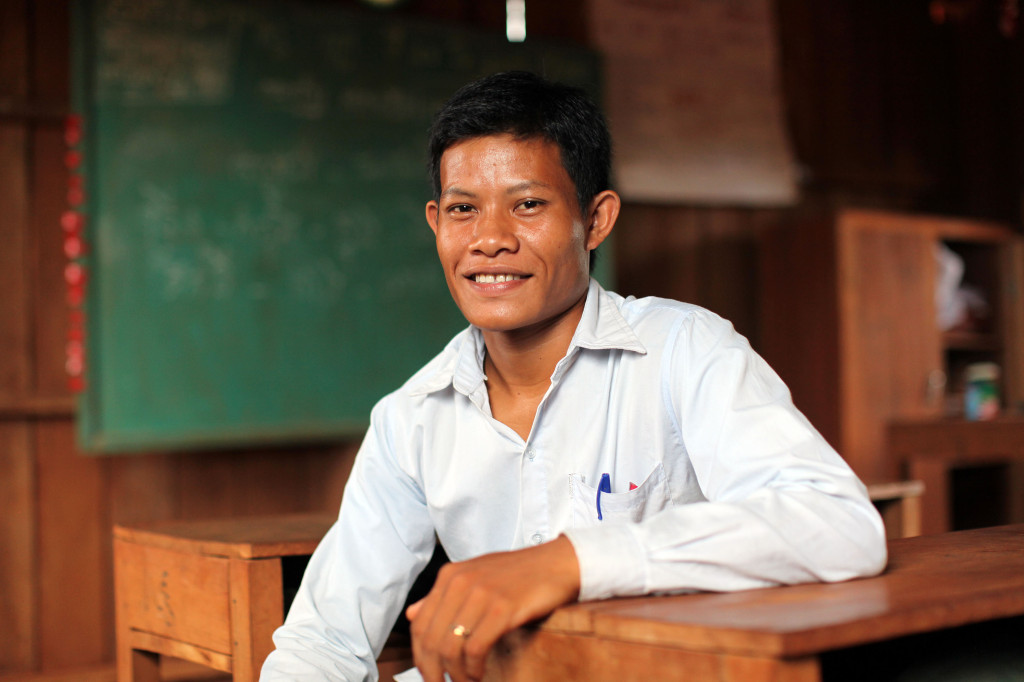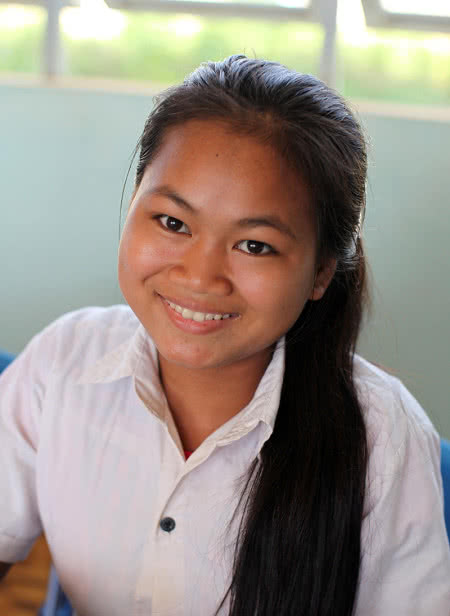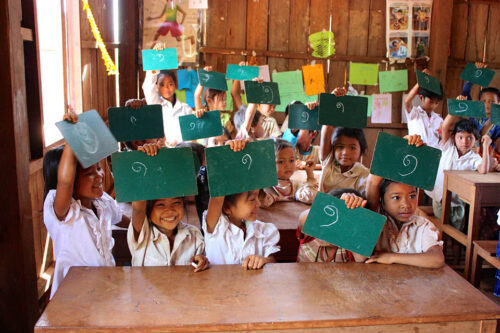In Cambodia, CARE is helping children from remote ethnic groups go to school and learn in their native language for the first time. The project’s incredible success has seen it adopted by the Cambodian Government, and replicated in state schools across the country’s north-east.
Khmer – Cambodia’s national language – is the only language of instruction in public schools, but few of the ethnic groups in the north-east provinces speak or understand it. Without an education or understanding of the national language, these communities have struggled to find employment, sell their produce for fair prices at markets and were vulnerable to exploitation.
How things have changed…
Bilingual education opening poverty-fighting opportunities
Students in CARE’s bilingual schools start learning in their native language, with Khmer phased in so they can eventually attend state secondary schools, which teach exclusively in Khmer.

Before this project began in 2002, there were no schools in many remote ethnic minority communities in North-eastern Cambodia and most indigenous groups did not speak Khmer. This fact is even more staggering when you consider that minority groups make up the majority of the population – over 50 per cent of the province belongs to one of six distinct indigenous communities, each with their own language.
Local teachers, passionate role models
Today, students are being taught by local teachers who had little education themselves, but were selected by village elders as caring and hard working members of the community to be trained as teachers by CARE. Now, these teachers can read. They can write. They can teach. And they are passionate role models to the children that sit in front of them each day.

Keeping children in school
For around four months of every year, North-eastern Cambodia experiences extreme food shortages. When this happens, it’s hard for a hungry family to prioritise education. Mothers, fathers and children – particularly girls – all work together to collect as much food as they can from the surrounding forest, sometimes walking for hours each day with young children in tow to help.
After seeing the impact a lack of food has on school attendance, CARE incorporated an agricultural component to its education program. Now, home gardens produce vegetables year-round, removing the need for long hours spent walking to the forest.
Learning beyond primary school
As well as building new schools, training local teachers in bilingual education and developing relevant curriculum, CARE has also built boarding houses at several state secondary schools. Scholarships are provided to students from remote villages so they can continue learning beyond primary school.
The project is giving these students access to a world of opportunity by unlocking Khmer, a language that will allow them to access their rights – not just as a minority group – but as citizens of Cambodia.

Model adopted by Cambodian Government
The program has been so successful that the Cambodian Government recently adopted a bilingual education policy based on CARE’s project. With the model part of Cambodia’s formal education system, more than 40 state schools across the north-east of Cambodia now support bilingual education.

